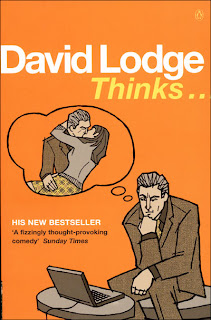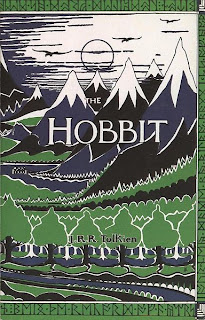
In a novel of ideas, David Lodge explores the literary implications when talking about the notion of Self in relation to consciousness - or the fundamental and inostensible quality that differentiates the homo sapien from other living entities. In Thinks... the theme and dialogue unfolds as a polemic debate between a narrative, literary approach, represented by writer-in-residence, Helen Reed and a scientific one represented by notorious womanizer and Professor and Director of Holt Belling Centre for Cognitive Science, Ralph Messenger.
The text is an intelligent exploration of narratives, which is apt, given that the central motif of Thinks... is the idea of the self and the different ways to access it. Written in a first-person, stream-of-consciousness style are Messenger's verbal narrations into a recorder, first, and later a voice-detection software. No doubt his ambitious techy gadgets are a direct reflection of his high opinion of science. His entries are associative, disorganized and circulatory in nature, and he rambles mostly about sex and women. Interestingly, Messenger steers easily from lewd and personal observations (which are quite humourous) to high-brow subjects with dense vocabulary and jargon.
Helen Reed's thoughts are recorded in a traditional diary-entry format. Her neat, concise, coherent style questions Messenger's mess. She is much less associative than thematic, and behind her control over her words one senses a chaotic turbulence of emotions - a result of her husband's recent death. Reed is more concerned with recording events than any real analysis of the people she meets. Sometimes, we catch an elaboration of an episode fleetingly mentioned in Ralph's recording, and vice versa. The journal entries are playful and illuminating in this way, often playing ball with the reader.
The many polemic debates about the issue of Self center around conversations between Ralph and Helen. For Helen, the Self is unrepeatable, inherent and intrinsic; it is an almost mystical element that is tied to the idea of the soul. Ralph's rejection of these terms is unsurprising. The mystery is reduced to a network of neurons reacting with chemicals, brain activity that can be replicated in a robot, who can be taught to feel, think, cry, experience grief, etc. Textually, the two opinions cross paths with a clever twist. Reed uses conversations with Ralph as creative writing exercises for her students. Thus, a scientific, jargon-laden academic paper on 'What Is It Like To Be A Bat?' transforms into a series of witty first-person accounts of bats. As though to add insult to injury, they are written in imitation of famous authors (Rushdie, Welsh, Amis, Beckett).
For a small window, linguistics lecturer Dr. Robyn Penrose, protagonist of Lodge's Nice Work, makes a guest appearance at as a guest lecturer. Reed comments about Penrose in her diary, "...found her much more sympathetic than I expected. I don't think this was because she had read some of my novels and spoke intelligently about them. She has a daughter aged four whose father doesn't seem to be in the picture and is much preoccupied with the logistic problems of being a single parent and the head of Communictions and Cultural Studies at Walsall". So here the problem of "I wonder what happened to Robyn Penrose..." is solved, once and for all. The level of self-consciousness in the text, I suppose, is not a coincidence, given the subject matter. But it certainly enriches the reading experience.
It is in voyeuristic ways like these that the text explores the processes of consciousness and the self. Spontaneous and shifting, it occasionally recedes into a memory, which in turn elicits further recounts of the past. In a sense, Messenger's stream-of-consciousness entries could be said to be a more accurate depiction of the natural thought process; they are uncensored and uninhibited, unlike Helen's control over her form and subject. At the same time, it is unfair to punish Helen simply because her recordings are not as chaotic as Messenger's. Is it not presumption when we legitimize one method of identification over another? The self as chaotic, uncensored, unorganized is guilty of being classified as a stereotype which makes it an inaccurate representation. Thinks..., I think, can be considered a metaconscious text. This is how title of the novel is important. It alludes to the thinking bubbles floating over characters in comics. Neither character can know with any certainty what the other is thinking but the reader sees all and knows all. It is a smart text that uses its own subject matter as art. An exploration of the exploration of consciousness? Messenger and Reed explore their own minds, we explore theirs. Trust Lodge to come up with something like that.










